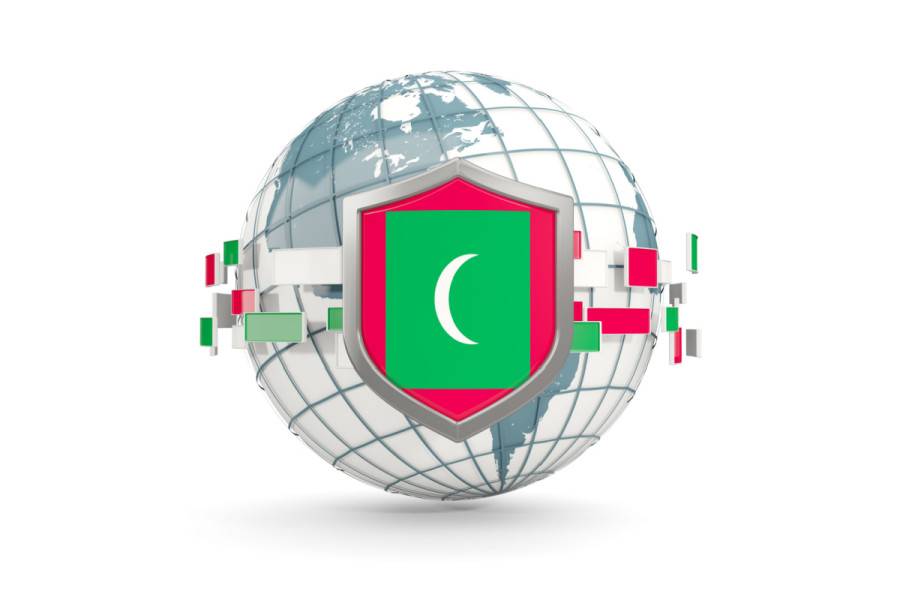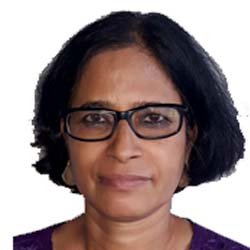Columns
Geopolitics dominates Maldives election
Maldives will remain crucial for countries with a deep interest in the Indian Ocean.
Smruti S Pattanaik
Maldives saw the first round of the presidential election on September 9 in which 282,000 people voted. Out of the eight presidential candidates, none received the mandatory 50 percent of the votes to be declared elected. So a runoff election has been scheduled for September 30 between the two top contenders—Ibrahim Mohamed Solih, the incumbent president from the Maldivian Democratic Party (MDP), and his rival, mayor of Malé, Mohamed Muizzu from the People's National Congress (PNC). Muizzu was nominated by its alliance partner Progressive Party of Maldives (PPM) which is headed by former president Abdulla Yameen who is currently in jail and was disqualified to contest the election. Muizzu received 46 percent of the votes and Solih received 39 percent. The election is being seen as a geopolitical contest between India and China. Solih and Muizzu are seen as being close to them respectively
Since the dawn of democracy in 2008, this island nation has become a ground for contest between external powers for influence given its geostrategic location. Especially after the announcement of China’s Belt and Road Initiative (BRI) and maritime Silk Route which coincided with Chinese President Xi Jinping’s visit to Maldives and the opening of the Chinese Embassy there, the island nation has attracted international attention. During the last election held in 2018, the main theme was the Chinese debt burden. In the 2023 election, a campaign against India has been launched by PPM.
Anti-India campaign
Maldives has always adopted an India first policy in its various pronouncements. Even though Abdulla Yameen followed in the footsteps of president Mohamed Waheed who developed close relations with China, he publicly maintained an India first policy while doing everything to undermine India’s interest. Since 2018, the PPM has made anti-India rhetoric its mainstay in politics to exert control over the administration and project itself as the only party that can protect the sovereignty and security of Maldives.
The opposition is harping on the presence of Indian troops—the 75 trainers stationed to maintain and operate two helicopters and Dornier aircraft on Maldives soil—and has accused loss of sovereignty under President Solih when, in 2021, Maldives and India signed an agreement to develop a dockyard and harbour in Uthuru Thilafalhu. In 2020, the United States signed a framework agreement on defence and security cooperation with Maldives. India-Maldives defence cooperation had expired in 2018 during Yameen’s regime as he had ordered India to take back two choppers that India had gifted in 2013.
As China expanded its presence, Yameen’s government saw an opportunity in courting China for investment and a strategic ally as he started persecuting the opposition and filled the judiciary with his supporters. Since 2018, the relationship between Yameen and India has soured while his relationship with China has soared. Yameen passed a Free Trade Agreement (FTA) with China without its being debated in Parliament. He also passed a land acquisition law through Parliament under which foreigners can get land if they invest $1 billion and 70 percent of such land has been reclaimed from the sea. The law is believed to have been adopted to favour China.
Therefore, it was not surprising that the 2018 election was fought based on Maldives’ indebtedness to China, massive corruption and the undermining of institutions by Yameen. Solih won the election after receiving more than 58 percent of the votes. Solih’s election created a hope for stable bilateral relations and an expectation that Maldives would be conscious of India’s security concerns. Prime Minister Modi attended the oath taking ceremony. India announced a $1.4 billion credit line to help Maldives overcome its financial distress.
Unfortunately, the deep divide within the party between incumbent President Solih and former president Nasheed has emerged as a major challenge. The difference between the two manifested itself when Solih won the primary that clinched his candidature as the party’s presidential candidate. The breaking point came when a no-confidence motion was brought against Nasheed who is the speaker accusing him of engaging in favouritism and delaying taking a decision. This was only withdrawn on September 11 after it became apparent that Solih had to fight a second round.
In June 2023, these differences resulted in 12 members of the MDP, including Nasheed, leaving to form a new party known as the Democrats Party whose candidate got only 7.18 percent of the votes. Nasheed has been demanding a transition to a parliamentary system of government that will empower Parliament by organising a referendum.
Final round
As the final round to elect the president approaches, there is a fervent move to reach permutation and combination of political forces. For the MDP, the main challenge is not only to get crucial support from Nasheed’s party; but also the support of other parties who fought the first round. Jumhooree Party leader Qasim Ibrahim has pledged his support to Solih on the precondition that he will eliminate foreign influence and establish equitable bilateral ties without leaning towards one side.
In a meeting between Solih and Nasheed on September 24, Nasheed said he continues to support Ilyas Labeeb, the presidential candidate of his party citing the Maldivian constitution which says that if the candidate who receives the second largest number of votes withdraws; the candidate with the third largest number of votes can enter the fray.
Though it is highly unexpected that Solih will withdraw from the race, it remains to be seen whether Nasheed’s supporters will vote for Muizzu—the candidate with the highest number of votes. The number of Maldivian voters living abroad has doubled for the second round of the election. With hectic campaigning both candidates are now focussing on domestic issues. Whatever the result, Maldives will remain geopolitically crucial for countries having a deep interest in the Indian Ocean, and India certainly will watch the election closely.




 8.75°C Kathmandu
8.75°C Kathmandu















